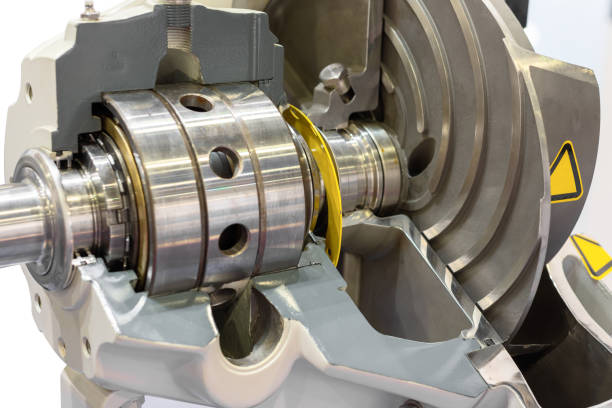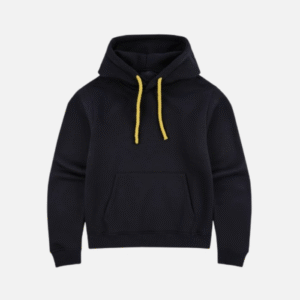
In the world of industrial machinery and heavy equipment, performance, efficiency, and reliability depend on one crucial factor — sealing technology. Among the unsung heroes of mechanical engineering is the hydraulic oil seal, a component that plays a vital role in ensuring that machines operate smoothly and without leakage. From manufacturing plants to agricultural equipment and construction machinery, these small but powerful components are the guardians that keep hydraulic systems running flawlessly.
Understanding the Role of Hydraulic Oil Seals
A hydraulic oil seal is designed to prevent fluid leakage and protect hydraulic systems from contamination. Hydraulic systems operate under high pressure, and even the smallest leak can lead to a drop in performance, loss of efficiency, or potential damage to expensive components. The oil seal creates a tight barrier between moving and stationary parts, ensuring that hydraulic fluid stays where it should — inside the system.
These seals are typically made from durable materials such as nitrile rubber (NBR), fluorocarbon (Viton), or polyurethane (PU), all of which provide excellent resistance to heat, pressure, and chemicals. In a typical hydraulic cylinder, the oil seal ensures that pressurized fluid does not escape from the chamber while keeping dust, dirt, and other contaminants from entering. This dual function makes the hydraulic oil seal an essential element for system integrity and longevity.
The Importance of Hydraulic Oil Seals in Industrial Operations
The reliability of hydraulic equipment directly impacts productivity across industries. Whether it’s in excavators, injection molding machines, or balers, the hydraulic oil seal ensures that systems maintain consistent pressure and performance. When seals wear out or fail, hydraulic fluid leakage can cause operational inefficiencies, overheating, and even complete machine breakdowns.
Maintaining a proper sealing system helps businesses reduce downtime and extend the lifespan of their machinery. For instance, in the manufacturing sector, where equipment operates continuously under intense pressure, a high-quality hydraulic oil seal prevents expensive repairs and loss of production time. Similarly, in agricultural and construction equipment, these seals protect components from the harsh external environment, ensuring reliability in the field.
One common area where hydraulic seals are particularly important is in baling equipment. To Maintain Your Baler Machine, ensuring that hydraulic oil seals are regularly inspected and replaced when needed is crucial. A worn-out seal in a baler’s hydraulic system can lead to pressure loss, reduced compression efficiency, and potential oil leaks that not only impact performance but can also pose environmental hazards. Proper maintenance and seal replacement ensure that the baler operates at its best, delivering consistent results and preventing costly breakdowns.
Key Functions of a Hydraulic Oil Seal
A hydraulic oil seal performs several critical functions within a hydraulic system:
- Leak Prevention: The primary purpose is to prevent hydraulic fluid from leaking out of the system, ensuring consistent pressure and smooth operation.
- Contamination Protection: The seal blocks dust, dirt, and moisture from entering the system, which could damage internal components.
- Pressure Maintenance: By containing pressurized fluid, the seal allows the hydraulic system to function efficiently without loss of power.
- Friction Reduction: High-quality seals are designed to minimize friction between moving parts, improving energy efficiency and reducing wear.
- Temperature Resistance: Hydraulic oil seals can withstand extreme temperatures, maintaining elasticity and sealing performance in both hot and cold environments.
These features make hydraulic oil seals indispensable in every industry where hydraulic machinery plays a role.
Types of Hydraulic Oil Seals
Depending on their design and application, several types of hydraulic oil seal are used across industries:
- Rod Seals: Installed on the piston rod to prevent hydraulic fluid from leaking out of the cylinder.
- Piston Seals: Designed to contain pressure on both sides of the piston, ensuring smooth movement within the cylinder.
- Wiper Seals: Keep contaminants from entering the system by wiping the piston rod clean during operation.
- Buffer Seals: Protect the main seal from high-pressure spikes and prolong its lifespan.
- Wear Rings: Support the piston and rod, maintaining alignment and preventing metal-to-metal contact.
Each of these seals is engineered for a specific purpose, and using the correct type ensures optimal system performance and durability.
Applications of Hydraulic Oil Seals
The versatility of the hydraulic oil seal allows it to be used in a wide range of applications, including:
- Construction Machinery: Excavators, loaders, bulldozers, and cranes rely on hydraulic systems for movement and lifting operations.
- Agricultural Equipment: Tractors, balers, and harvesters use hydraulic seals to maintain power and efficiency.
- Industrial Manufacturing: Hydraulic presses, injection molding machines, and stamping machines depend on precise sealing for consistent output.
- Automotive Industry: Used in braking systems, power steering, and suspension systems to ensure reliable performance.
- Aerospace and Marine Applications: Hydraulic seals maintain system integrity under extreme conditions, ensuring safety and control.
These industries demand high reliability, and the hydraulic oil seal ensures that hydraulic systems deliver consistent performance across demanding operations.
The Role of Maintenance and Inspection
Proper maintenance of hydraulic systems is essential for operational safety and efficiency. Regular inspection of seals is a key part of this process. If a hydraulic oil seal shows signs of wear, such as cracks, swelling, or hardening, it should be replaced immediately to prevent further damage.
As mentioned earlier, to Maintain Your Baler Machine, operators must pay close attention to the condition of hydraulic seals. Dust and debris can cause wear over time, while fluctuating temperatures and high pressures can degrade seal materials. Replacing seals during scheduled maintenance ensures uninterrupted operation and prevents hydraulic oil contamination that could affect the quality of the output.
Additionally, using high-quality hydraulic fluids and ensuring proper filtration further extends the lifespan of the seals.
Top Companies Providing Hydraulic Oil Seal Solutions
The demand for premium hydraulic oil seal solutions has led to the emergence of several top manufacturers and suppliers known for quality and innovation. Here are some leading companies offering advanced sealing technologies:
- SabTech – SabTech is one of the most trusted names in the field of industrial hydraulic solutions. The company offers a wide range of hydraulic seals, cylinders, and system components designed to meet the demanding needs of various industries. Their products are known for precision, durability, and superior performance. SabTech also provides specialized maintenance services for hydraulic equipment, including solutions to Maintain Your Baler Machine, ensuring optimal performance and longevity.
- SKF – A global leader in motion and sealing technologies, SKF provides high-performance hydraulic seals that deliver exceptional reliability in industrial and mobile applications.
- Parker Hannifin – Known for engineering excellence, Parker Hannifin manufactures a wide range of hydraulic oil seals and sealing kits tailored to heavy-duty machinery and industrial systems.
- Trelleborg Sealing Solutions – Trelleborg offers innovative sealing products made from advanced materials that can withstand extreme pressures and temperatures.
- Freudenberg Sealing Technologies – Specializing in precision sealing solutions, Freudenberg’s hydraulic seals are used globally in automotive, aerospace, and industrial sectors for superior protection and longevity.
These companies provide complete sealing solutions that ensure the smooth functioning of hydraulic systems across industries.
Choosing the Right Hydraulic Oil Seal
Selecting the correct hydraulic oil seal depends on several factors including the type of fluid used, operating pressure, temperature range, and the nature of the application. For instance, seals used in high-temperature applications must be made from heat-resistant materials like Viton, whereas seals for agricultural machinery should be able to resist dust and moisture.
It is advisable to consult with experienced suppliers such as SabTech to determine the most suitable seal design and material for specific machinery requirements. Their technical expertise ensures that you get a product that delivers optimal sealing performance, reduced maintenance costs, and extended equipment life.
The Future of Hydraulic Sealing Technology
As industrial technology advances, so do hydraulic systems and their components. The next generation of hydraulic oil seal designs focuses on improving efficiency, sustainability, and smart monitoring. Modern seals are being engineered with advanced polymers that offer self-lubrication, reduced friction, and longer lifespans.
Moreover, smart hydraulic systems equipped with sensors can now monitor seal conditions in real-time, alerting operators before a failure occurs. This predictive maintenance approach minimizes downtime and enhances operational safety. Companies like SabTech are investing in these innovations to deliver sealing solutions that align with Industry 4.0 standards, combining precision engineering with digital intelligence.
Conclusion
The hydraulic oil seal may be a small component, but its impact on machinery performance and reliability is immense. By preventing fluid leakage, maintaining pressure, and keeping contaminants out, it ensures that hydraulic systems operate efficiently and safely. Whether in construction, manufacturing, or agriculture, these seals are essential for the longevity and productivity of every machine.
To Maintain Your Baler Machine and other hydraulic equipment, regular inspection and timely replacement of oil seals are vital. Trusted providers like SabTech, SKF, and Parker Hannifin continue to lead the industry with durable, high-performance sealing solutions that keep modern machinery running at its best. As technology evolves, the role of hydraulic oil seals will only grow stronger, driving efficiency, sustainability, and reliability across all sectors of industrial innovation.


